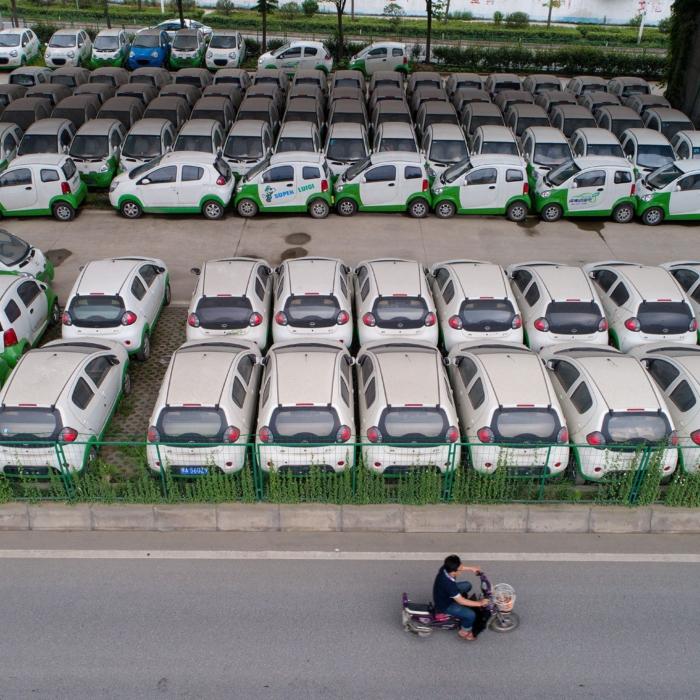Beijing could bring roads in the UK “to a grinding halt very, very quickly” if Chinese electric vehicles flood the British market, a former spy chief has warned.
Sir Richard Dearlove, former head of MI6, suggested the Chinese communist regime could remotely shut down vehicles in the UK if there’s a “severe deterioration” in the countries’ relationship.
The report said Sir Richard labelled the issue “the next Huawei” and called on the government to consider banning the use of Chinese electric vehicles by Cabinet ministers and on sensitive national infrastructure sites.
Easy Target
It comes after MPs and peers were warned about “connected vehicles,” particularly those from China, as well as the expected scale of vehicle imports from China because of the government’s plan to ban new petrol and diesel vehicles from 2035 in its push towards net zero.The submission said there are “major security issues” with an influx of Chinese EVs that have connected capability, including the potential for the Chinese regime to “control/adjust/stop/collect data from vehicles being driven in the UK.”
Besides concerns over data security, the document says: “We know that at the moment connected vehicles can be stopped remotely. If this happened on a motorway at 70mph and the automatic braking system was applied to a vehicle the traffic would simply pile in the back. If this occurred at strategic points it could gridlock cities.”
The document also highlight China’s dominance in the EV market, as it “controls up to 95 percent of the battery supply globally as well as the raw materials,” and said the UK “is seen by the Chinese manufacturers as an early and easy target” for battery EV exports.
“The Chinese government owned MG(SAIC) has concentrated on exporting into the West its sales last year grew by 134% in the UK. Producers such as Great Wall, BYD, Nio, & Xpeng are likely to become increasingly well-known brands over the next three years,” the document reads.
“These of course do not include the imports from China in the form of BMW, Polestar and Tesla. Companies such as Volvo also have Chinese ownership. Steve Young of the ICPD is predicting an influx of an additional 300,000 vehicles will [be] coming in annually from China within a couple of years.”

However, Chinese products capable of transmitting data raise more concerns because of the regime’s authoritarian nature and increased aggressiveness both home and abroad.
Under the regime’s National Intelligence Law, organisations and citizens can also be compelled to hand over data to “support, assist, and cooperate with national intelligence efforts.”
The issue of remote locking has also been widely reported in Chinese media.
In an article published by state-owned China Energy News in May 2023, China Consumers Association, the regime’s market regulator, said apart from quality issues, some manufacturers have remotely upgraded vehicles’ systems to limit their battery power to “reduce safety risks.”
In 2018, BYD was embroiled in controversy when the company was accused of remotely locking dozens of cars that were on the way to a “problematic car show.”
According to local media reports, a “car owner” said some 50 BYD owners were going to the show to highlight quality issues with the brand, but most of them got remotely locked down.
However, BYD denied the allegation, saying the vehicles were locked by a car rental company because the drivers were behind on their payments for a number of months.







